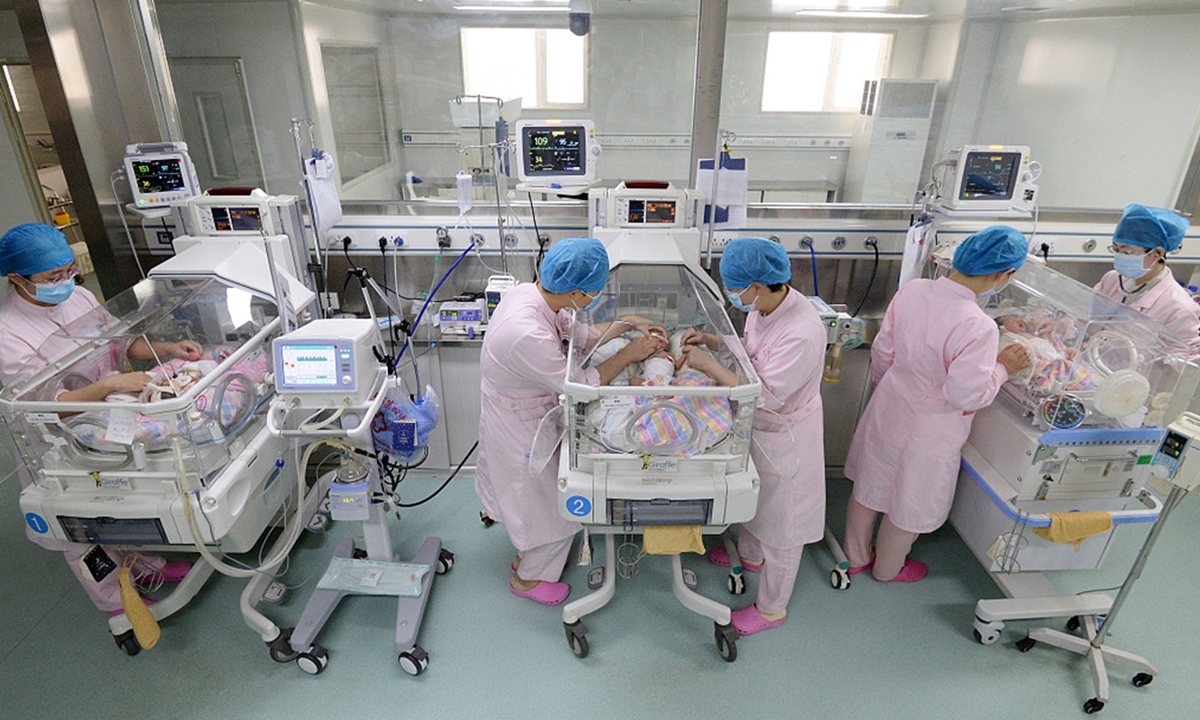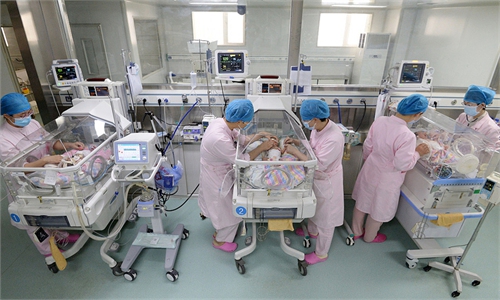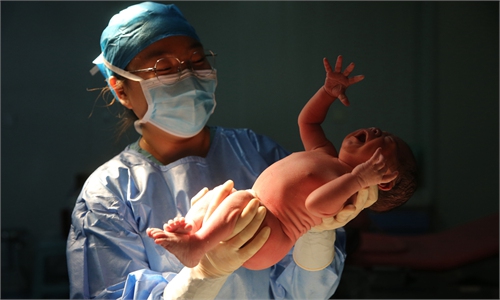China could boost fertility, register 10 million newborns in 2030 with effective policies: report

Third-child policy Photo: VCG
A report on China’s population development was released by the YuWa Population Research think tank on Friday, in which it made predictions about population trends, as the country faces population downward pressure and has introduced various policies to bolster the fertility rate.
The think tank was established by a group of demographers and economists, including economics professor at Peking University Liang Jianzhang.
In 2022, the population in the Chinese mainland registered first negative growth in 61 years, decreasing by 850,000 year-on-year to 1.4118 billion, data released in January by the National Bureau of Statistics (NBS) showed.
The number of births was 9.56 million with the birth rate standing at 6.77 births per 1,000 people in 2022, the lowest since the founding of the People’s Republic of China in 1949, data from the NBS showed.
However, the number of new births could return to more than 10 million by 2030, as long as there are sufficient economic incentives, according to Liang.
It is estimated that if the country implements various effective policies to fully encourage birthrate, it’s possible to raise the fertility rate to 1.4, which is close to the average fertility rate in developed countries, Liang said during a press briefing on Friday. Under this condition, there will be 10.62 million new births in 2030 and the total population is expected to stand at 1.29 billion in 2050, according to the report.
Observers have said that the negative growth of population is the inevitable result of the country’s long-term low fertility rate, however, its demographic dividend will not disappear.
Song Jian, a demographer from the Center for Population and Development Studies of the Renmin University of China, told the Global Times on Friday the fertility rate determines the future direction of population development, while the long-term extremely low fertility rate is the biggest challenge we face currently and in the future.
Family plays a vital role in boosting the birth rate, so more measures should be explored to focus on families and solve their actual problems, according to Song.
Strengthening family development is an important part of the construction of fertility supportive policy mechanism, Song noted, saying that we should pay attention to family development, reduce family burdens, relieve their worries and create necessary conditions for reversing the dilemma of low fertility rate.
In the report, the experts proposed 10 suggestions to encourage the birth rate. The suggestions include cash subsidies, for instance, for each minor child in a two-child family, a subsidy of 1,000 yuan ($145.47) could be given monthly.
It proposed tax incentives, subsidizing house purchasing, building nurseries, increasing the number of days of maternity leave for both parents, flexible working period in office, supporting assisted reproductive technology, and education reform.


